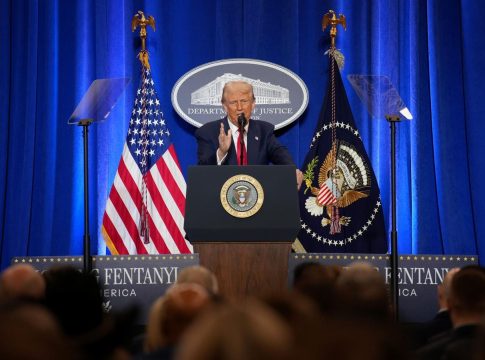Justice Department Shifts Focus on White Collar Crime Enforcement
Washington, D.C. — March 14, 2023
In a strategic pivot, the U.S. Justice Department unveiled a memorandum outlining new enforcement priorities aimed at addressing white collar crime more effectively. Matthew R. Galeotti, the head of the department’s Criminal Division, emphasized the need for a focused approach on different types of corporate misconduct that pose significant risks to American citizens and national interests.
Criminal Division’s New Policy Focus
The memorandum specifies ten key areas of white collar crime that the Justice Department will prioritize:
- Health care fraud
- Trade fraud
- Risks associated with Variable Interest Entities, particularly those linked to Chinese firms
- Investment fraud including Ponzi schemes
- Money laundering that threatens national security
- Support for terrorist organizations by corporations
- Violations of drug laws
- Bribery
- Cryptocurrency-related crimes
- Financial crimes impacting American investors
Galeotti noted that bribes and foreign corrupt practices would receive particular scrutiny, despite the administration’s controversial executive order that suspended enforcement of the Foreign Corrupt Practices Act—an initiative aimed at protecting American competitiveness abroad. The memo had raised concerns within legal and corporate communities, especially after the resignation of U.S. Attorney Danielle Sassoon over an order to dismiss bribery charges against New York City Mayor Eric Adams.
Glaring Omissions in Enforcement
Interestingly, the policy does not prioritize prosecution for income tax fraud, a significant oversight given a 2021 Treasury report estimating that the top 1% of earners are responsible for over $160 billion in unpaid taxes annually. This is compounded by recent staffing cuts planned within the Internal Revenue Service, which could further weaken tax enforcement efforts.
Environmental crimes also remain unaddressed in the memorandum, despite global estimates valuing the damage from these offenses at upwards of $281 billion. The gap in priorities raises questions about the comprehensive nature of the new guidelines.
Accountability or Red Tape?
Echoing sentiments from a similar memorandum issued back in 2015 aimed at enhancing individual accountability for corporate crimes, Galeotti reiterated the importance of prosecuting individuals rather than just companies. Yet, historical data shows little change in the balance of prosecutions between corporations and individuals.
“…It is individuals—executives, officers, or employees—who commit these crimes,” Galeotti stated, highlighting the Criminal Division’s intent to hold individual wrongdoers accountable.
However, critical voices continue to question whether this fresh commitment to tackling corporate crime will translate into meaningful action.
As the Galeotti memorandum concludes, it stresses that effective white collar enforcement is essential for promoting economic and national security. It expresses a dedication to fostering cooperative relationships within the industry while emphasizing the need for integrity and justice in all dealings.
FBI’s Contrasting Directive
Developing… Notably, on the same day that the memorandum was issued, the FBI shifted its operational focus towards immigration enforcement, which could dilute efforts aimed at white collar crime. This juxtaposition between stated intentions and action remains an area of concern for advocates of robust corporate accountability.

Focuses on crime, public safety, and regional events.
Bio: Marcus is a community-based journalist passionate about reporting impactful stories that matter most to readers.

